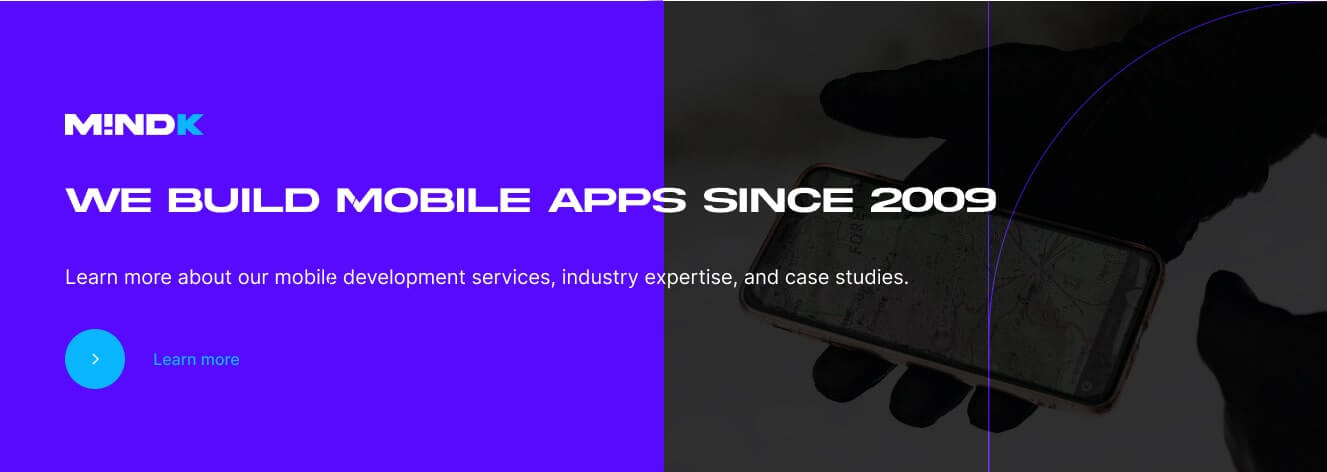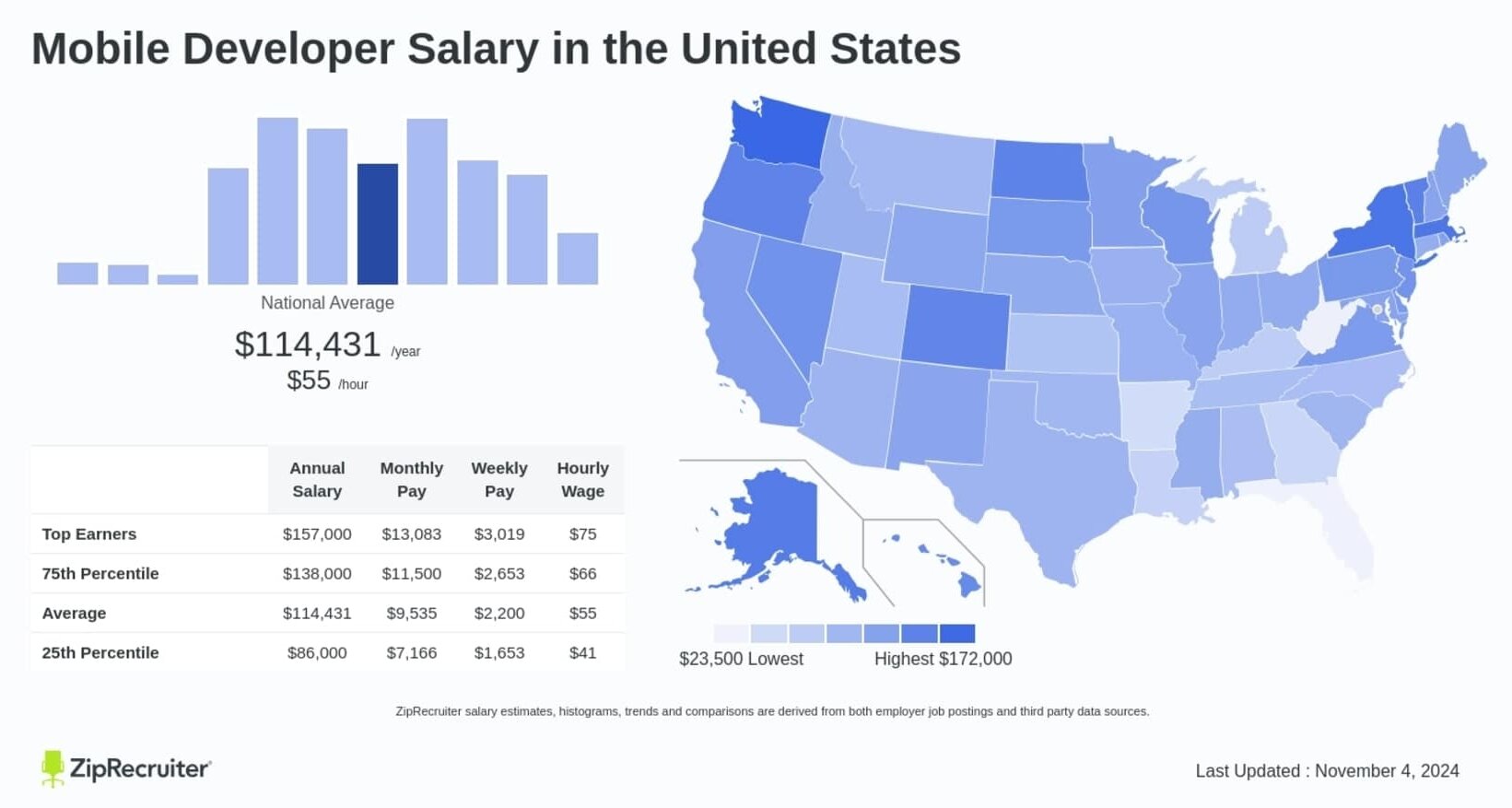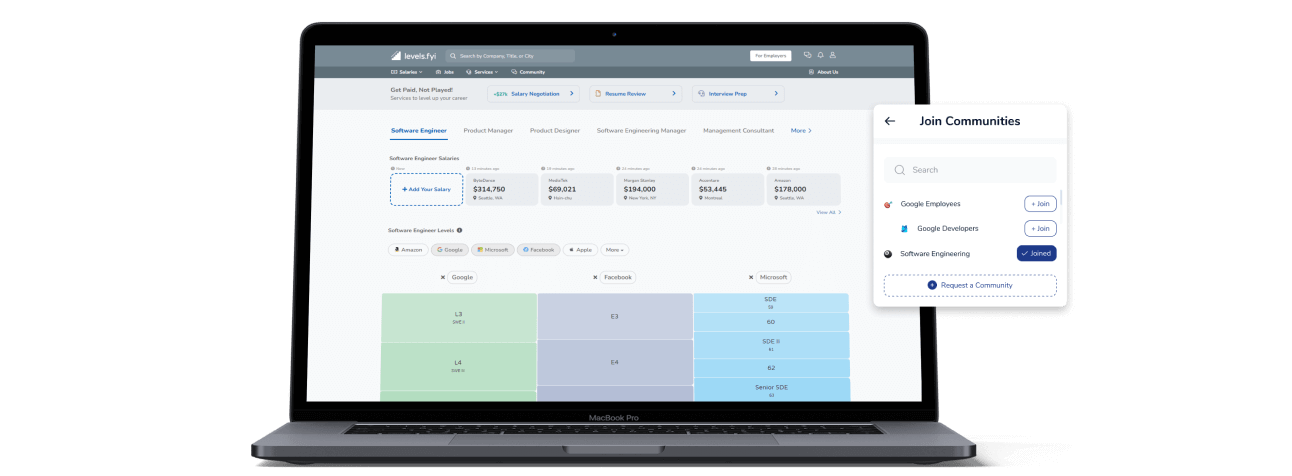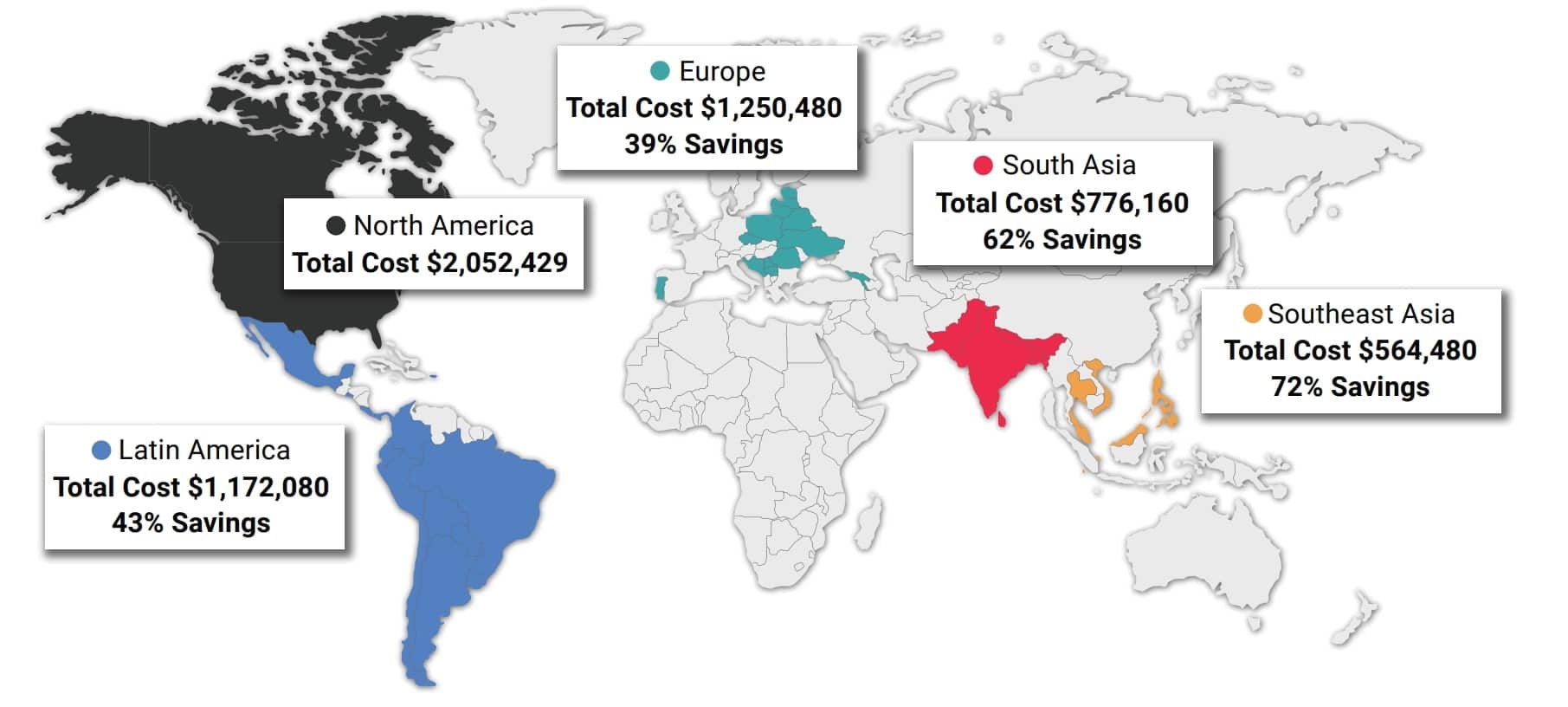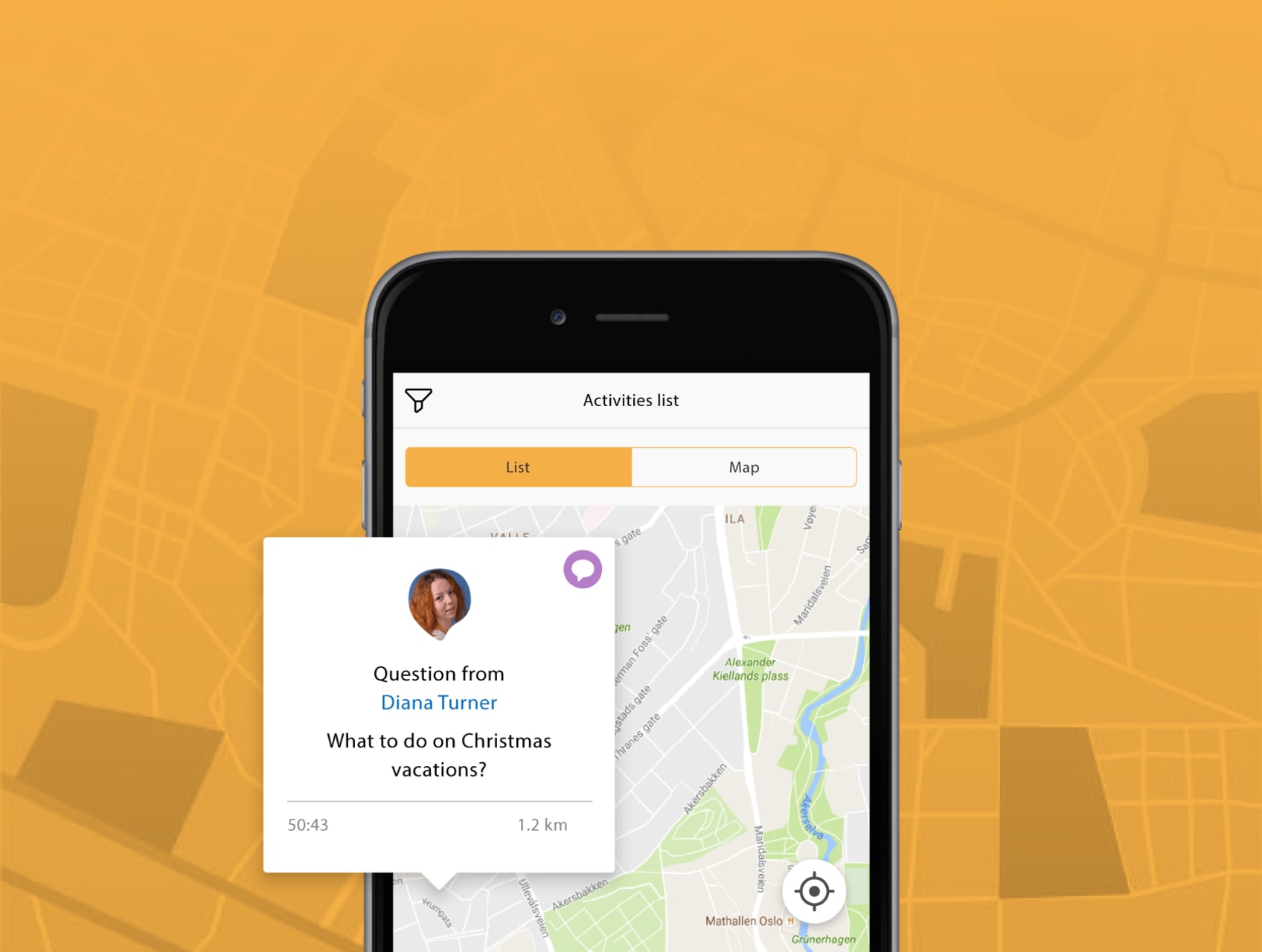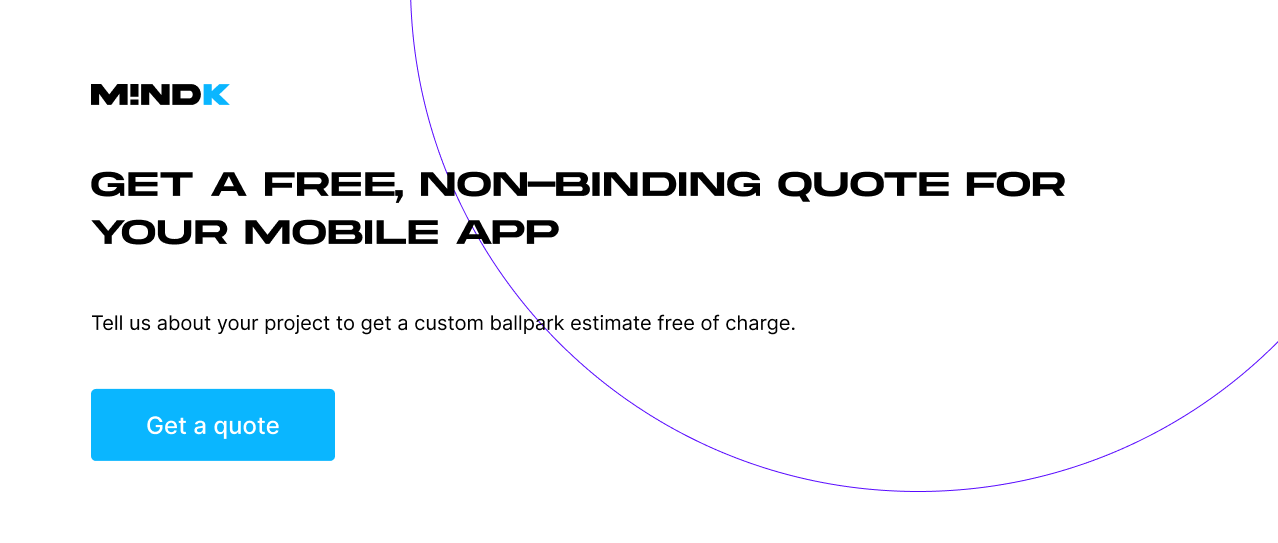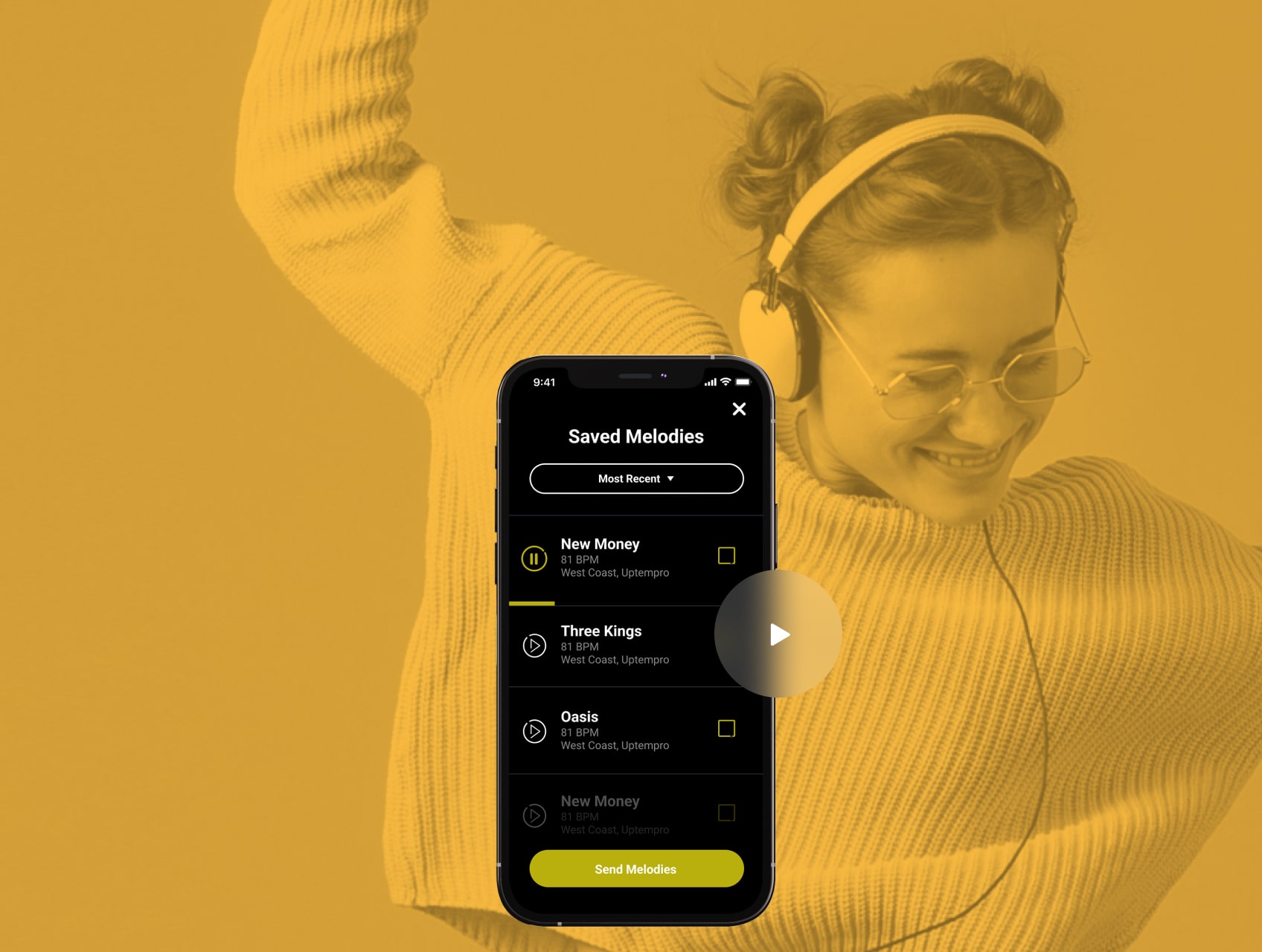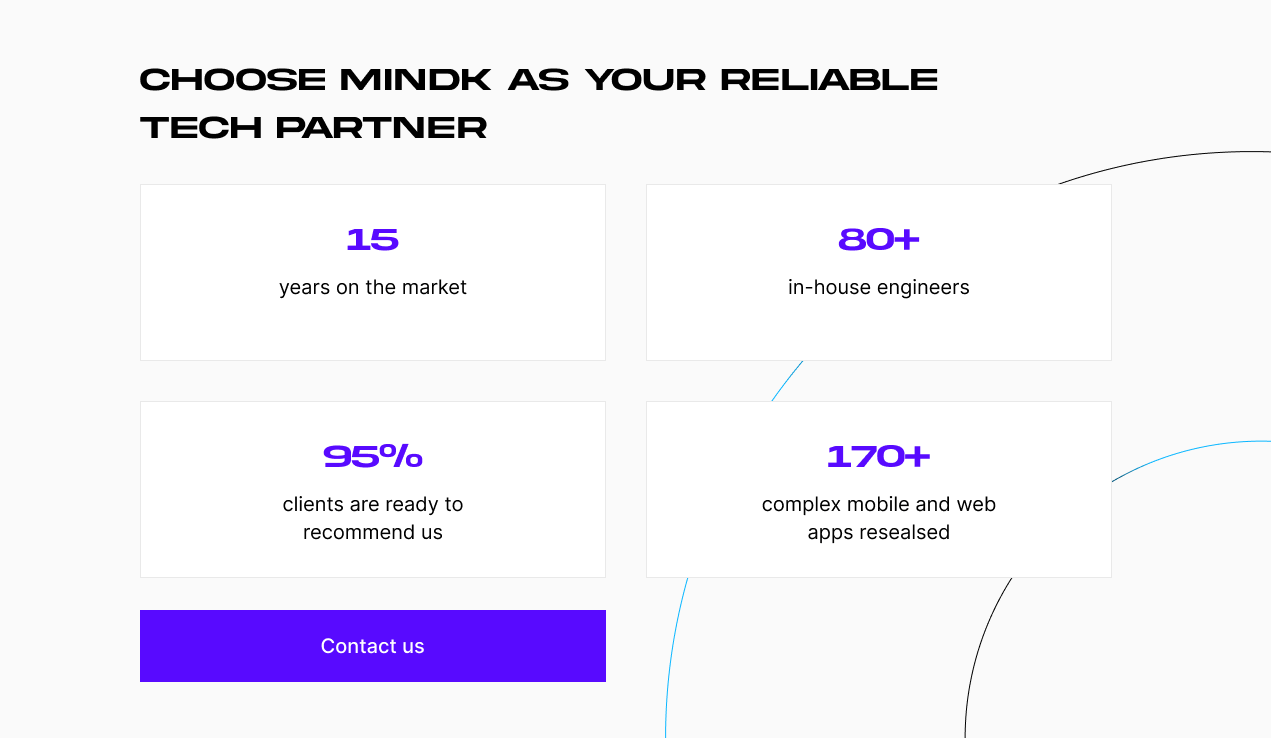Startups often face the “experience paradox”. They need seasoned developers but suffer from severe budget constraints. In 2025, most founders will have to find creative solutions to overcome this paradox. So, where do you find mobile app developers to realize your idea without breaking the bank?
As a software development company, MindK often has to hire mobile app developers for US clients. We start by asking several questions. Are you looking for a single developer or an entire team? Do you also need to hire an app designer, product manager, QA engineer, etc.? Do you have a tech expert to conduct the interviews? Would you prefer managing freelancers yourself or having an agency run an outsourced development team?
Important nuances range from understanding the key qualities of a great developer to navigating the local employment laws and taking care of IP ownership, double taxation, and confidentiality. They also include onboarding new team members, managing the project and risks, communicating across time zones, code review and testing protocols, setting the right KPIs and tracking performance, retaining key talent, as well as balancing in-house vs outsourced development teams.
All of this seems overwhelming, so let’s break it into bite-sized steps. We’ll guide you through battle-tested and lesser-known strategies to help you build the mobile app development team of your dreams.
Table of contents:
- Where to find mobile app developers
- How much does it cost to hire a mobile app developer
- How to evaluate mobile app developers
- How to choose a mobile app development company
- How to navigate the legal aspects of international hiring
Where to find mobile app developers?
There are many ways to find the right experts for your project. Each has its pros and cons.
Freelancer platforms and marketplaces
Examples: Upwork, Freelancer.com, Guru.com, Toptal, Lemon.io, Fiverr, PeoplePerHour.
Freelancers are a good option for part-time jobs and founders with limited budgets. After posting your offer on sites like Upwork, you will receive bids from freelancers. Review each proposal carefully and select the candidate that best fits your requirements and budget. Checking their portfolio, client feedback, and ratings will help you make the right decision.
Finding freelance app developers is easy. On the flip side ‒ how can you be sure of hiring a reliable, qualified specialist? The quality of work and ethics varies greatly among freelancers. There are many cases of people juggling too many clients or disappearing in the middle of a project.
This is where platforms like Lemon.io and Toptal come to the rescue. They claim to provide a list of pre-vetted candidates with proven qualifications. Such platforms use AI tools and HR managers to check technical skills and evaluate developer experience.
However, vetting platforms aren’t always transparent about the skills or the hiring speed. Likewise, they can’t guarantee a successful project completion. So, research any platform or freelancer before committing to work.
Pros:
✔️ Cost-effectiveness. Hiring freelancers is cheaper compared to in-house developers. Vetting and bidding platforms typically charge a flat fee or a % of the freelancer’s earnings. Some have subscriptions for businesses that frequently hire mobile application developers.
✔️ Global talent pool. Connecting with developers worldwide increases the chance of finding the right expertise, especially for niche skills.
✔️ Flexibility and speed. Hiring freelancers is quick and almost effortless. Pick a candidate and get started. If something goes wrong and you are not satisfied with the services provided, you can hire another developer just as fast.
✔️ Pre-vetted engineers. You can never be 100% sure of the app developer’s skills. However, freelance platforms claim to have a rigorous vetting process to reduce the risk.
Cons:
❌ Varied quality of work. A large pool of freelancers is both a blessing and a curse. Skill levels vary significantly so it’s important to carefully vet freelance developers.
❌Less control. Many of our clients complained of freelancers who juggle multiple projects and rush to deliver results. You have to make sure freelancers prioritize your project and can meet the deadlines.
❌ Unreliability. When working with freelance specialists, you risk being left alone with an unfinished project. While not all freelancers are untrustworthy, it’s wise to choose reputable platforms and start small.
❌ Confidentiality issues. In addition to communication barriers, hiring freelancers is the most risky option when it comes to IP rights and keeping secrets. So, remember to do all the paperwork.
Job boards to hire mobile app developers in-house
Examples: Indeed, Glassdoor, AngelList, Dice.com, Stack Overflow Jobs, Levels.fyi.
Most companies that hire full-time employees post job openings on platforms like Indeed or Glassdoor. This provides a number of benefits. It’s easier to manage and communicate if the entire mobile development team works in one office. Even with remote employees, founders feel in control over the team and the results they produce.
Going for in-house developers isn’t cheap, however. According to ZipRecruiter, the average mobile app developer salary in San Francisco is $134,819 a year vs $67,500 for Prague. Apart from paying a salary, you must also factor in the cost of insurance, paid vacations, dental plans, sick leave, free coffee, gym, and other benefits.
Pros:
✔️ No cultural barriers. When searching for in-house employees, you are more likely to find someone who shares your startup’s values and attitudes. This might prevent misunderstandings and communication issues.
✔️ Seamless team collaboration. When everyone’s in one office, you’re likely to have better productivity and team relationships (except for the rare cases of office drama).
✔️ More control. You directly manage recruitment, interviews, and selection. With a mobile development team under one roof, it’s easier to monitor progress and resolve issues.
Cons:
❌ High salaries. The average mobile developer in the US earns $114,431 a year, which may be too expensive for some companies. We’ll talk more about salaries below.
❌ Additional expenses. Besides salary, factor in other expenses like taxes, employee benefits, office rent, and utility bills. Those perks can account for 25% to 40% of the employee’s salary. And don’t forget about hidden recruitment and training costs.
❌ Time-consuming. Few startup founders enjoy going through dozens of interviews after sifting through hundreds of CVs. Even with a well-built recruiting process, the average time-to-hire in the US is 52 days. This is much higher than hiring freelancers or outsourcing mobile app development.
❌ Talent retention difficulties. The average tenure for a mobile developer in the USA is less than a year. Therefore, startups need to be serious about retaining the key in-house staff.
Levels.fyi, a job search platform and community apps on iOS and Android, developed by MindK [case study]
Mobile app development outsourcing companies
A single engineer will never have the same level of experience as a mobile app development company with dozens of successful products in their portfolio. Such agencies usually have all the resources you need to realize your ideas.
Unlike most outsourcing firms, MindK doesn’t look for engineers on the local market at the client’s request. All our app developers available for hire have been working with us for at least 3 years, gaining a stellar reputation on multiple projects. We’re confident of their skills and encourage clients to run additional tech interviews and test assignments.
Another advantage is that you get access to all other specialists you might need on a mobile project – Product Managers, UI/UX Designers, DevOps engineers, QA Specialists, AI/ML engineers, and even web developers. A highly specialized professional may temporarily join a project to solve a challenge much quicker than a generalist.
Mobile development companies offer various engagement models to meet client needs and requirements. Here’s a brief overview.
| Team augmentation | Project outsourcing |
|
|
|
|
|
|
|
|
Pros:
✔️ Development expertise. With dozens of successful projects in various niches, mobile development companies have the experience to tackle complex challenges. This experience helps to secure the success of your product.
✔️ Long-term partnership. Any mobile development outsourcing company worth its salt is serious about reputation. It treats each project with a sense of personal responsibility. Bound by legal agreements, the team will continue the work to ensure a smooth operation after the release.
✔️ Cost-savings. Outsourcing companies provide local talent at a lower cost. You can often avoid overheads, hiring, and onboarding costs, paying only for the work that is done. After a project estimate is completed, you’ll understand exactly how much you need to invest in the project.
✔️ Scalable, comprehensive services. At companies like MindK, you can hire a mobile application development team that covers all the project tasks. They range from preparing the system requirements to App Store publishing and support. You can also scale your team up or down with ease.
Cons:
❌ Less control over a team. Many companies filter communication through project managers rather than directly with mobile developers. They might also give you less say in selecting individual team members.
❌ Different time zones. Working across time zones can be a challenge. When the time difference is significant, it may be hard to schedule meetings convenient for everyone.
❌ Cultural barriers. If you work with mobile app developers from overseas, you might face challenges such as language barriers. This may lead to misunderstandings and poor quality.
We detailed how to mitigate these cons in the article on how to outsource app development.
Agency directories and B2B review platforms
Examples: Clutch, DesignRush, GoodFirms, The Manifest, TechReviewer.
Nothing beats a recommendation from a long-time friend or a trusty partner. More than half of all hires come from internal referrals. But what if you don’t have a person you can trust in the industry? B2B directories like Clutch can help you hire a mobile app development company with search and filtering as well as independently verified reviews and company ratings.
Pros:
✔️Experienced teams. This approach shares most pros and cons with the previous one as long as you do the research, clearly communicate your goals, and sign legally-binding contracts.
✔️Project management. Agencies handle coordination, reducing your managerial burden. Most also have a solid Quality Assurance process in place.
✔️Scalable resources. Working with a mobile development company allows you to adjust team size and expertise as project demands change.
Cons:
❌Less direct control. A client typically has limited influence over individual team members.
❌Potential misalignment. Agencies use a huge variety of methodologies and engagement models which requires thorough research to fit your needs.
❌ Risk of dependency. Ongoing support may tie you to a company. This is one of the risks you can mitigate by specifying knowledge transfer in your contracts. You can also outsource mobile app development to multiple vendors to diversify risks, or have the vendor mentor your new hires.
If you only require basic functionality, a freelance developer might suffice. But if you plan to build an application with complex logic, it’s better to hire a mobile app development company like MindK to make sure you have all the necessary experts.
We use both native and modern cross-platform development frameworks like React Native. In fact, we’ve used these frameworks to build a popular mobile game and an award-winning entertainment app.
Juvo, a native iOS/Android app developed by MindK [read the case study]
How much does it cost to hire an app developer?
Developer salary is one of the main components that make up the cost of mobile app development. Here are the median annual salaries for mobile engineers around the world, according to StackOverflow developer 2024 survey:
iOS developer salary:
- Swift (worldwide): 74,100 USD
- Swift (USA): 100,265 USD
- Objective-C (worldwide): 72,284 USD
- Objective-C (USA): 123,138 USD
Android developer salary:
- Kotlin (worldwide): 65,000 USD
- Kotlin (USA): 127,151 USD
- Java (worldwide): 61,222 USD
- Java (USA): 117,931 USD
Cross-platform developer salary:
- React Native (worldwide): 63,000 USD
- React Native (USA): 129,348 USD
- Flutter (USA): 98,514 USD
- Kotlin Multiplatform Mobile (worldwide): 65,000 USD
- Kotlin Multiplatform Mobile (USA): 127,151 USD
- Jetpack Compose Multiplatform (USA): 124,464 USD
As you can see, cross-platform mobile developers are usually less expensive than native iOS/Android engineers. The above-mentioned figures are raw estimates. Your expenses may vary greatly depending on the developer’s experience, location, education, and other factors.
With mobile development companies, the costs also depend on company size, expertise, and engagement model. Although it might be tempting to go for the lowest bid, enterprise-ready companies usually charge at least $40 an hour per developer.
Want to get a custom quote for your mobile application? Tell us more about your project, and we’ll provide you with a free estimate within 24 hours.
How to evaluate mobile app developers
When hiring a mobile app developer, it’s important to assess their hard and soft skills through the interview process, just as you would with any other professional.
Check hard skills
When it comes to hard skills, both theoretical knowledge and practical experience are important.
The theoretical part usually includes a variety of questions to test the mastery of programming languages, frameworks, and the latest development tools (e.g., SwiftUI, Jetpack Compose) along with the general knowledge of iOS/Android:
- Top interview questions to ask Swift and Objective-C developers.
- Best questions to ask Android and Kotlin engineers.
Technologies change all the time, according to Nika Arkatova, Lead HR at MindK. So, the most difficult thing is to find mobile app developers that are open and capable of learning new languages, frameworks, and libraries. She likes to start the interview by asking engineers about their experience:
- What exactly did they do in the past?
- How many programming languages do they know?
- Do they understand OOP, algorithms, and other fundamentals of computer science?
- Why did they decide to become a developer?
She says: “You want to hire a true geek, a person who disassembled their first PC, the person who dived into their favorite game’s engine to figure how it works. Such a candidate will explore every new technology with great interest. This interest and a flexible mind allows them to learn fast. And this is exactly what you want in a mobile developer.”
Next comes the practical evaluation. If you’re not a tech expert yourself, it’s better to ask an experienced developer to help you prepare the tests. There are many possible ways to organize practical assessment:
- Portfolio evaluation: review previous projects, apps, and open-source contributions. Focus on code quality, design patterns used, and user experience.
- Technical discussion: dive deep into specific areas of expertise, such as memory management, concurrency, or security in mobile apps.
- Whiteboard challenges: pose algorithmic or architectural problems that require on-the-spot problem-solving.
- Code review: provide candidates with intentionally flawed code, ask them to identify and fix issues.
- Take-home assignments: provide time-sensitive tasks to assess the ability to deliver under pressure and with constraints.
At MindK, we run all candidates through a multi-stage interview and assessment process that filters out 96% of potential candidates. So drop us a line if you’ve got any questions about hiring mobile app developers.
Evaluate soft skills
Should you hire a genius developer who doesn’t gel with your team or a good developer who fits seamlessly into the company’s culture? This is one of the questions you can debate endlessly. However, there’s no doubt that soft skills play a role in project success:
- Effective communication: an engineer should be able to convey ideas clearly in English, both verbally and in writing. Active listening is just as important.
- Time management includes the ability to prioritize tasks and complete critical work without sacrificing quality.
- Mental agility helps developers quickly adapt to new technologies and acquire the necessary skills.
- Accountability and ownership are critical traits we develop in product teams. An engineer should own up to mistakes and learn from them.
Picking the right personality for the project will bring you one step closer to building a high-performing app development team.
How to choose a mobile app development company
If you decide to partner with a mobile app development company, the process is a little bit different.
#1 Search for potential partners
We recommend shortlisting at least 5 promising companies as the right choice for your project:
- Ask for recommendations from your network and business partners. Some of the most successful projects we developed at MindK came from such recommendations.
- Use independent review aggregators like Clutch and DesignRush.
- Research online for companies with relevant expertise.
#2 Check each company’s portfolio
After you’ve picked several candidates, learn more about their experience and expertise. Check recent case studies to see how they work and the results achieved.
As an example, we developed an intuitive search engine for musicians. To test the idea without a significant investment, our team first built a quick proof of concept. After receiving positive feedback from users, we developed apps for Android and iOS that got over 10,000 downloads in 3 months
Melody, a Tinder-like app we built for a team of Grammy Award-winning producers [read the case study]
#3 Read customer reviews
The number of completed projects can prove the company’s experience. But it’s also useful to read client testimonials. They can show whether a mobile app development company is capable of delivering a high-quality product within time and budget. For instance, here is feedback from one of our clients.
#4 Contact the company’s representatives
Start by filling out the contact form on the company’s website. Provide a few words about your project requirements, timelines, and anything considered critical to a successful partnership. The process might vary from company to company, but from MindK, expect an answer from the technical team within 24 hours.
After this, the company will schedule a brief introductory call to learn more about your project. You can usually sign a Non-Disclosure Agreement (NDA) to protect the idea before revealing any details. The vendor will ask about business goals, technical requirements, and other mission-critical information.
This is the perfect time to learn about the developer’s capabilities. Ask about their experience with similar projects, engineering approaches, and terms of service. Request relevant case studies and references.
Contact past clients to uncover any dark secrets.
#5 If possible, review CVs and run interviews
Staff augmentation companies will typically send the CVs that match your requirements along with the developer’s hourly rates. Low pricing is a red flag. With project-based outsourcing, the vendor will typically analyze the requirements to come back with a project estimate and proposal.
At MindK, we usually also suggest an optimal architecture, tech stack, team composition, and create a design concept before the start of the project.
Just like with in-house engineers, we recommend our clients double-check any developers they hire from outsourcing companies. Even a short interview will reveal a lot about the engineer’s personality and technical skills, to make sure they’re a right fit for your project.
How to navigate the legal aspects of international hiring?
Many founders hesitate to look for mobile developers abroad due to legal complexities. The process depends heavily on the hiring model you choose.
Direct employment usually requires a deeper understanding of local employment laws. Different countries may have mandatory benefits like health insurance, pensions, or paid leave, which are also important to research.
Those who want to hire a mobile app development company should take the following precautions to mitigate the risks of outsourcing:
- Draft robust contracts. Specify job duties, compensation, intellectual property rights, and confidentiality clauses among the terms and conditions:
- Protect Intellectual Property (IP). The first step is to sign a Non-Disclosure Agreement (NDA) with every new team member. You can also insure your company against IP disputes arising from international hires. Finally, make sure that all work created is legally transferred to your company.
- Ensure tax compliance. Determine if taxes need to be withheld in the employee’s country. Utilize treaties to prevent being taxed in both countries.
- Explore alternative legal structures. These include joint ventures with local firms to share responsibilities and compliance burdens. Another option is to acquire a local company to simplify employment and operational processes.
When handling EU citizen data, adhere to GDPR. If necessary, consult legal experts for advice on country-specific nuances.
Conclusion
As Steve Jobs once said: “Great things in business are never done by one person. They’re done by a team of people.”
There are many ways to find great app developers – from marketplaces for freelancers to B2B review platforms and agency directories. With all of them, it’s important to research your options, look through the case studies and references, as well as protect yourself with legally-binding contracts.
Now that you know how to hire mobile app developers, you’re halfway there. If you need a partner with proven tech skills and industry expertise ‒ MindK fits that bill perfectly. Feel free to drop us a line to arrange a free consultation with our mobile app development team.

